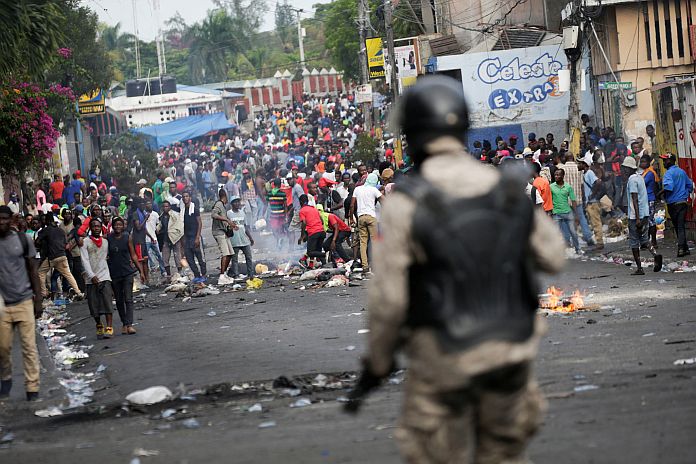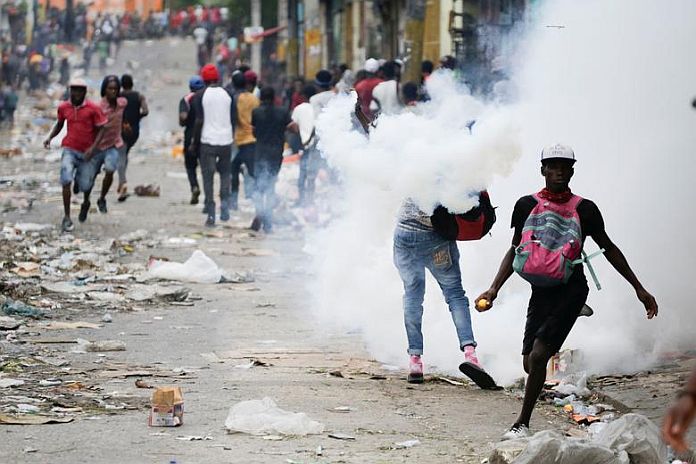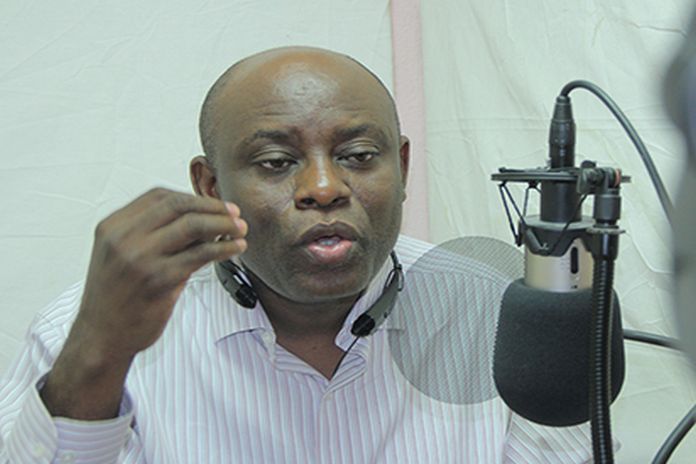By Pierre Esperance
PORT-AU-PRINCE, Haiti – In Haiti, the people are not living; they are just surviving. Holding all the power, as the government, is only one branch – the executive, in the hands of one man only. President Jovenel Moïse. With regard to the other branches of government, there is no parliament and the judiciary is intimidated.
Since January 2020 there has been no parliament, no Senate. There is no counterbalance to president Moïse. He is governing by decree, making policy decisions that benefit only his own interest and that of his henchmen. They support gangs of villains, terrorizing dissidents, and they operate the levers of government, including the treasury, with no accountability.
Related: The Haitian people: Sadly and badly in need of a champion
Recently, the experienced Caribbean diplomat and respected scholar, Sir Ronald Sanders, published an article on Haiti. He wrote the truth. He knows Haiti. And, after many meetings with Haitian representatives, he is very connected with the situation of Haitians. He believes that better must be done. It is the right thing to do.
They are a few appointees of president Moïse who have tried to deny what Sir Sanders has written, but they are singing for their supper. They cannot disprove the reality on the ground. It is there for all to see.
Since president Moïse came to power, Haiti has lived with more, insecurity, more corruption, and more human rights violations. The gangs, who support the president, have been involved in ten massacres from November 2017 to present.
There is a call for elections. But it is a poisoned chalice because president Moïse alone, in contradiction to the Constitution of Haiti, is organizing elections with his own appointees. That very act is an alteration of the constitutional order of Haiti, and a violation of the Inter-American Democratic Charter which the Organization of American States (OAS) and its secretary-general, Luis Almagro, should have investigated long ago. Yet, nothing is done.
The only elections in which president Moïse has any interest is one which accords with his own wishes. In Haiti, the voters had electoral cards and he changed that. Most Haitians don’t have an electoral card. We had an electoral system, but he changed the system.
If Haiti has elections in this situation, the opposition parties will not be able to campaign freely. They will be plagued by organized gangs and violence under the control of the executive branch of government. The opposition could not organize or express their fundamental rights and freedom. Right now, if a demonstration is attempted, the police arrest the organizers and use whatever means necessary, including brutality and bullets, to disburse gatherings. The government does not respect the freedom of the people.
Yes, Haiti needs free elections. However, what is required is a transition in which the elections can be organized and conducted by independent bodies. If the OAS, CARICOM and the international community, come to observe president Moïse’s elections, it will only be to legitimatise an illegitimacy.

We cannot have elections in Haiti under these conditions, with a presidency that controls all key institutions. The solution is a transition government for a period of two-years. The transition government should comprise civil society and political parties, working together towards an agreement that lays the groundwork on the way forward for Haiti, including free and fair elections.
When elements of the government say “we are working with the OAS, CARICOM and the rest of the international community to be able to hold this constitutional referendum as well as general elections in 2021”, one has to ask the question: what is their intention?
Right now, we have a government ruling by decree that is attempting to re-write a new constitution, unconstitutionally, by a group of persons handpicked by the president. For whom are they rewriting the constitution, when there is no civil society involvement? We cannot talk of rewriting the constitution, outside the participation of a transitional government.
When we in Haiti look at the situation in Venezuela, Nicaragua and Bolivia, we see the readiness of the OAS and the international community to call for democracy, constitutionality and the rule of law. But on Haiti, they are silent and are looking away. We ask ourselves why? It is a question the member states of the OAS should also ask themselves.
Haiti today is the most dangerous place in the Caribbean, because of kidnappings, gang violence, death squads, organized murder with the support of the executive branch and a presidency by decree. Their interest is corruption and staying in power.

The people of the Americas and the Caribbean must acknowledge that Haiti has a totalitarian government, operating in an environment of impunity, insecurity, corruption, the lack of basic needs, human rights violations, COVID-19, and a food crisis.
We, in Haiti, ask ourselves: how can these people – our neighbours – stand-by while Haiti is ruled autocratically and its people are abused willfully.
I represent a human rights organisation. We fight against corruption and we work for the freedom and the fundamental rights of people. We support democracy in Haiti. That is what we would like the OAS to help us achieve – they are the very principles written in their Charters, and they should stand up for them.





